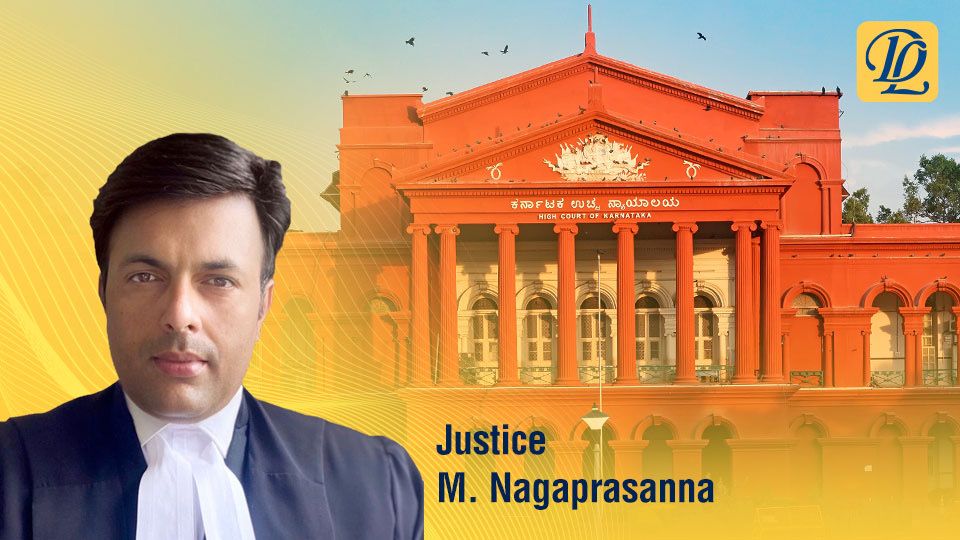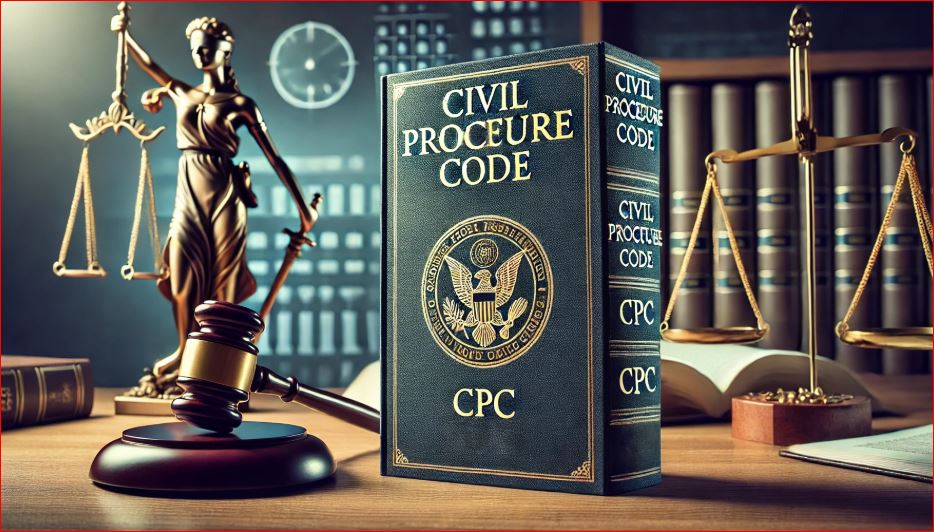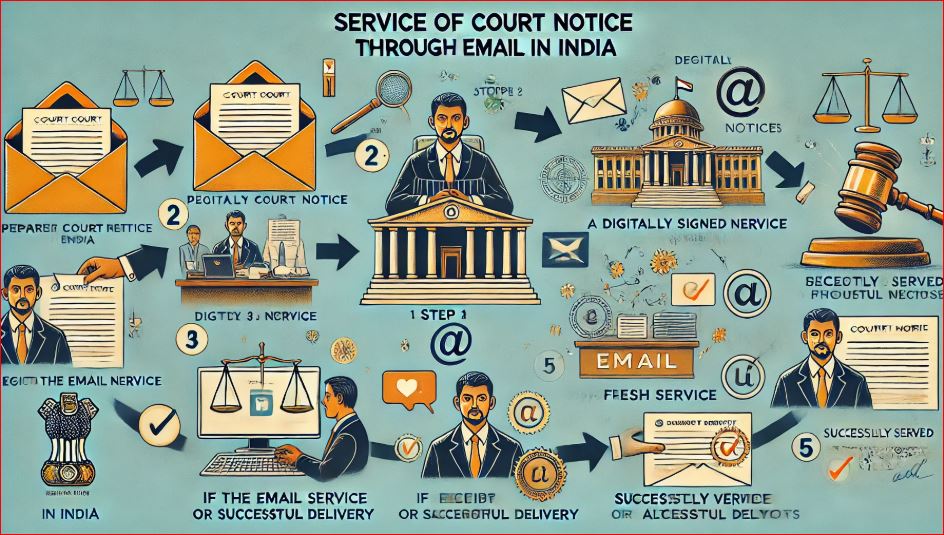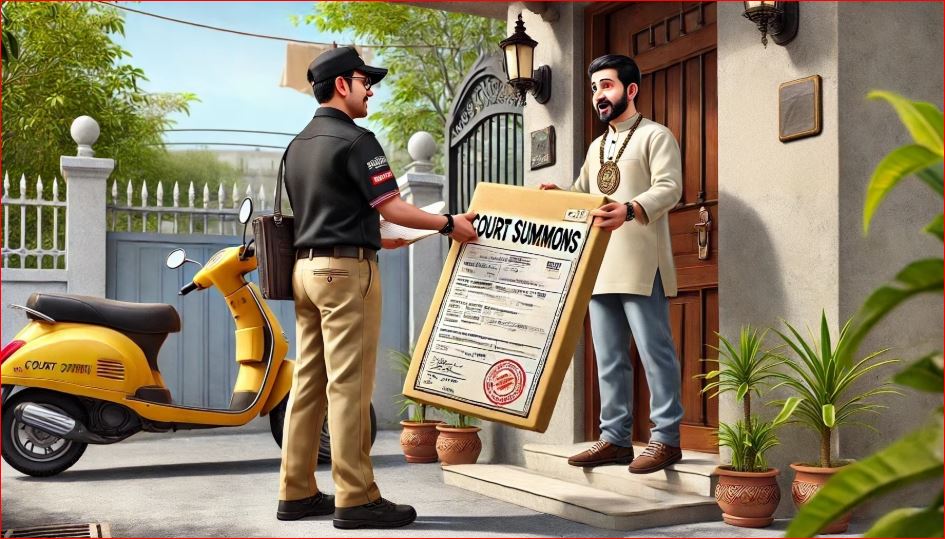Karnataka High Court quotes Benjamin Disraeli ‘’all power is a trust – that we are accountable for its exercise – that, from the people, and for the people, all springs, and all must exist” while dismissing CM Siddaramaiah plea.
- 24-September-2024 14:59
Shri. Siddaramaiah vs The State of Karnataka and others.
Writ Petition 22356 of 2024 decided on 24 September 2024
Justice M. Nagaprasanna
The petitioner is the Chief Minister of the State of Karnataka. He is knocking at the doors of this Court, calling in question a GUBERNATORIAL order, which grants permission or approval under Section 17A of the Prevention of Corruption Act, 1988 (‘the PC Act’ for short) and sanction under Section 218 of the Bharatiya Nagarik Suraksha Sanhita, 2023 (‘BNSS’ for short) against him.
17. I have given my anxious consideration to the submissions made by the respective learned counsel and have perused the material on record. In furtherance whereof, the following issues would arise for my consideration:
ISSUES: (1) Whether the petitions before the Governor and the complaints before the concerned Court were justified in the fact situation? (2) Whether the approval under Section 17A of the Act is mandatory in the teeth of facts? (3) Whether Section 17A of the Act requires only a Police Officer to seek approval from the Competent Authority? (4) Whether the order of the Governor suffers from want of application of mind? (5) Whether it would suffice for reasons to be recorded in the file of the decision making authority and the same culled out in parts in the impugned order? (6) Whether the decision taken by the Governor in alleged hottest haste of issuing a show cause notice on the same day of receipt of the petition has vitiated the entire decision? (7) Whether reference to Section 218 of BNSS in the impugned order vitiates the entire order? (8) Whether prima facie role of the petitioner is established?
20.....The individual award notice would clearly indicate that despite Mallaiah or Mylaraiah who has received the notice on 18-04-1998 has not come forward to claim compensation, therefore in terms of Section 31(2) of the Land Acquisition Act, the amount is deposited before the jurisdictional civil Court. Here lies the choke. If the land had been denotified, why at all did MUDA, after such denotification determine individual award. The MUDA does not stop at that, continues to form the layout and distributes sites in favour of allottees. From 1998 till 31-12-2003, the owner of Sy.No.464 is shown as MUDA. The Encumbrance Certificate also reflects the name of MUDA. Upto the date of acquisition, it reflected the name of Mylaraiah. Nowhere it reflected the name of Devaraju.
21. Here springs into the picture the family of the Chief Minister. One Devaraju who claiming to be the son of Ninga, executed a sale deed in favour of B.N. Mallikarjunaiah. B.N. Mallikarjunaiah is the brother-in-law of the petitioner. The sale deed is executed on 25-08-2004, by then, on 15-06-2004 sites were formed, areas were demarcated for park and other amenities and several sites had already been distributed to the allottees, they were 19 in number......What is discernible from the sale deed is, none of the factors that have happened from 1992 are even noticed. Devaraju was aware that the subject land was included in the preliminary notification; he was award that final notification also included his lands, as he had submitted representation for denotification. Passing of the award is also within the knowledge of Devaraju. Deliberately all these factors are suppressed and a sale deed is executed as if it is free from all history. It is interesting to notice the schedule to the sale deed. 3 acres 16 guntas of land in Sy.No.464 is shown as agricultural land, whereas 7 years ago, MUDA had formed the layout and one year prior to the sale deed, MUDA had distributed sites after formation of layout. I fail to understand how the land still remained as agricultural land after all these events. But, agricultural land, which ceases to be agricultural land, is shown to be purchased by the brother-in-law of the petitioner. The narration in the sale deed is that the vendor G.Devaraju has been paying taxes till the date of sale deed. This is another blush of illegality. After the brother-in-law of the petitioner coming into possession of the property, the brother-in-law applies for conversion of the property. The aforesaid order of conversion is on the basis of two inspection reports of the Tahsildar dated 05-03-2005 and the Deputy Commissioner himself on 17-06-2005.
.....Thus, the brother-in-law of the petitioner purchases the so called agricultural land and gets it converted from agricultural to non-agricultural purposes on the score that the land was kept for residential purpose. It is necessary here to again observe that MUDA had already distributed sites to the allottees in this very property....It is interesting to notice the representation. The representation indicates few factors. They are, the MUDA had formed the layout and distributed the sites in the year 2001 itself. If the wife of the petitioner was aware that MUDA had distributed the sites in 2001 itself, how did her brother purchase a property which was already with MUDA and how it was accepted by way of a gift. It is here the needle of lurking suspicion about the transaction emanates. This representation is taken forward by a communication from Commissioner, MUDA to the Secretary, Urban Development Department. A communication then comes from the Commissioner, MUDA to the wife of the petitioner on 18-08-2004....The son of the petitioner Dr. Yathindra.S who was an MLA of the very same constituency – Varuna participates in the said meeting, which resolves as aforequoted. The wife of the petitioner, after the aforesaid resolution, again submits a representation seeking compensatory sites in lieu of usage of the lands as aforesaid, in terms of the Rules.
....The relinquishment deed narrates entire history as to how the wife of the petitioner becomes the owner of the property. After relinquishment deed dated 25-11-2021 MUDA determines number of sites to be granted in favour of the wife of the petitioner. The alternate sites in lieu of 3 acres 16 guntas of land in terms of Government order dated 5-01-2022 which was to be in terms of the prevailing market value..
25. From 1996 to 1999 the petitioner was the Deputy Chief Minister of Karnataka State. Again in 2004 and 2005 he was the Deputy Chief Minister; from 2013 to 2018 he was the Chief Minister and between 2018 and 2023 son of the petitioner was an MLA. Therefore, intermittently on and off, the petitioner has been at the helm of affairs. Notwithstanding the aforesaid period of the petitioner at the helm of affairs, the vehement contention of the petitioner is that he made no recommendation nor has signed any document nor has any connection to the transaction. It is rather difficult to accept that the beneficiary of the entire transaction to which compensation is determined at `3.56 lakhs to become `56/- crores is not the family of the petitioner. In the decision making process at certain time son of the petitioner was a party to the meeting which took a decision finally to allot 14 sites. It is too bleak contention meriting any acceptance albeit prima facie that the petitioner was not behind every thing standing just behind the curtain. It is not behind the smoke screen but behind the curtain even.
26. If events or the link in the chain of events are noted, there are few dots to be connected. It is that connection of dots that would require an inquiry or an investigation in the least. I say so for the reason that immediately after 14 sale deeds were registered in favour of the wife of the petitioner, the Urban Development Department issues directions to the Commissioner, MUDA to stop allocation of compensatory sites till guidelines are formulated. Therefore, the law was completely towards prima facie illegality only to favour the wife of the petitioner as the very allotment of sites as compensation is said to be contrary to the Compensation for Land Acquired Rules 2009 and Incentive Scheme of Voluntary Surrender of Land Rules,1991. In the Assembly elections of 2023, the petitioner swings back as Chief Minister. On 27.10.2023 the Government cancels the resolution dated 14.09.2020. What is the resolution dated 14-09-2020 is the one that led to a decision for allotment of 14 sites in favour of the wife of the petitioner in which the son of the petitioner was a participant.
7. After cancelling the resolution it appears that a Technical Committee was appointed by Government to go into the illegalities of MUDA. The Technical Committee is said to have submitted its report highlighting huge corruption and fraud played by MUDA officials. When all these inquiries were going on a complaint comes to be registered by 3rd and 4th respondents before the jurisdictional police on 3-07-2024. The jurisdictional Police though acknowledged the complaint, did not take it further. On 12-07-2024 both the 3rd and 4th respondents register complaints before the Commissioner of Police. This was in compliance with clause (1) of sub-section (2) of Section 154 of the Cr.P.C.. Even then, no action is taken. The 4th respondent then approaches the Lokayukta on 26-07-2024 to register a complaint against the petitioner. When things stood thus, the 3rd and 4th respondents file their respective private complaints before the Special Court constituted exclusively to deal with criminal cases against MPs and MLAs. It is then, the 3rd respondent knocks at the doors of the Governor seeking approval/sanction to prosecute the petitioner as obtaining under Section 17A of the Act. The facts narrated would clearly justify the complaints/petitions by the complainants. The issue is answered accordingly.
Issue Nos.2 & 3: (2) Whether the approval under Section 17A of the Act is mandatory in the teeth of facts? & (3) Whether Section 17A of the Act requires only a Police Officer to seek approval from the Competent Authority?
This Court considered the importance and purport of Section 17A. The petitioner is a public servant and the allegations against him are wanting to be investigated into. If investigation has to ensue, it must pass through the gates of 17A. Therefore, an approval under Section 17A from the hands of the Competent Authority is imperative, as it is the mandate of the statute. Without an approval under Section 17A, no enquiry, inquiry or investigation can commence against a public servant. The who of it, I mean, who should seek approval, has become the bone of contention.
31. The aforesaid were the directions issued by this Court in ASHOK.V. supra. Pursuant to the said directions, the High Court has issued a circular to all the concerned Court, for implementation of the said directions. In the light of the preceding analysis, I answer issue No.2 holding that approval under Section 17A of the PC Act is mandatory to be obtained, in the teeth of the obtaining facts, qua Issue No.3, I hold that it is not necessary for the police officer to seek approval from the hands of the Competent Authority, in a private complaint. It is the complainant, whomsoever it is, should discharge the duty of seeking approval from the hands of the Competent Authority, a caveat, only in a private complaint registered under Section 200 of the Cr.P.C. or under Section 223 of the BNSS.
Issue Nos.4 & 5: (4) Whether the order of the Governor suffers from want of application of mind? & (5) Whether it would suffice for reasons to be recorded in the file of the decision making authority and the same culled out in parts in the impugned order?
32. As observed hereinabove, the complainant/3rd respondent approaches the jurisdictional Police, no action is taken for 7 days, approached the Commissioner, no action is taken, then he seeks to knock at the doors of the Governor and simultaneously files a private complaint before the Special Court invoking Section 200 of the Cr.P.C. In terms of law laid down by this Court in ASHOK supra and the circular issued by this Court, the 3rd respondent submits a petition before Governor on 26-07- 2024 seeking approval to prosecute the petitioner. The petition submitted by the 3rd respondent is quoted hereinabove.
Article 163 deals with Council of Ministers to aid and advice the Governor. It reads that there shall be a Council of Ministers with the Chief Minister at the head to aid and advice the Governor in exercise of his functions except insofar as he is required to exercise his functions or any of them in his discretion.
Article 164 deals with the other provisions as to Ministers. The Chief Minister will be appointed by the Governor and the other Ministers shall be appointed by the Governor on the advice of the Chief Minister. A question arose before the Apex court with regard to granting of sanction for prosecution of Ministers. Whether the Governor should act on the aid of the Council of Ministers or can take his independent decision in the matter. The Constitution Bench of the Apex Court considers this very issue and holds that normally the Governor is required to act on the aid and advice of the Council of Ministers, but if it is a matter of sanction to prosecute, it may carve out an exception whilst considering the grant of prosecution of Chief Minister or a Minister whether as a matter of propriety the Governor may have to act on his own discretion. Similar would be the situation if the Council of Ministers disable itself or disentitles itself. The Apex Court also considers what would be apparent bias, though the plea of apparent bias is held to be an exception to the general rule.
36. Bias has different hues and forms. They are depicted in various ways. Unconscious bias and apparent bias are two facets of bias. Apparent bias is judged upon what would a common citizen think of a particular action. In the case at hand, the entire sheet anchor of the submission of the learned senior counsel is that the Governor should not have declined to accept the Cabinet decision or the resolution of the Council of Ministers as the petitioner did not participate in the deliberations, but nominated the Deputy Chief Minister, to preside over the said meeting. It need not bear scientific accumen to prima facie hold that the Council of Ministers who are appointed on the advice of the Chief Minister would go against the Chief Minister and pass a resolution that permission should be accorded for grant of approval by the Governor for prosecution . Such a situation cannot be contemplated today as, if such a situation emerges, it would be an utopian land, while it is not. Therefore, testing the decision of the Cabinet on the bedrock of bias, I find no fault in the discretion exercised by the Governor, on the foundation of law, as laid down by the Apex Court in the case of M.P. SPECIAL POLICE ESTABLISHMENT’s case. The Apex Court holds that the likelihood of bias which has been applied in number of cases is based upon reasonable apprehension of a reasonable man, fully cogzinent of the facts. The Apex Court holds that the question whether real likelihood of bias existed is to be determined on the probabilities to be inferred from the circumstance. If the rightminded person would think that there is real likelihood of bias it would be enough to annul the decision...Considered on the touchstone of the principles of bias, as laid down by the Apex Court and on the perusal of the preamble of the Cabinet note supra what would unmistakably emerge it that the decision of the Cabinet – the cabinet nominated by the Chief Minister, would not be free from bias or being partisan towards their leader. It is in such exceptional circumstance, independent discretion is imperative; the Governor has thus taken an appropriate decision to independently assess the matter, exercise his independent discretion and pass the order. I find no fault with the discretion exercised by the Governor acting on the Aid and advice of the Council of Ministers is normal imder Article 163 and exceptionally the Governor need not be bound by it – one such exception is the sanction/approval against the Chief Minister.
38. Whether the order of the Governor suffers from nonapplication of mind. The order that is communicated to the petitioner is quoted supra. Complete proceedings in the file maintained in the Secretariat of the Governor are also quoted supra. The Secretary of the Governor has communicated the decision of the Governor which thus contains all the material though excerpts of the decision. The decision runs into several pages. I have perused the entire file; the documents that are in the file run into 1200 pages. The comparative chart of the complaint, replies and the analysis are in great elaboration. This Court is not testing the order passed by the Disciplinary Authority or an Officer of the State. It is testing the order passed by the high functionary. The high functionary in the case on hand is the Governor. Though the order that is communicated does not suffer from any want of application of mind, since elaborate submissions are made with regard to the order of the Governor not being reasoned at all, it becomes apposite to notice the judgment of the Apex Court in the case of UNION OF INDIA v. E.G. NAMBUDRI. The Apex Court observes that perusal of the file is a permissible mode of examination by the constitutional courts in judicial review, to arrive at a conclusion as to whether actual reasons behind the order are found or not. As quoted hereinabove, the order that is communicated though is not bald, laconic or cryptic, as is alleged, the file contains elaborate reasons. The gist of these reasons is also quoted hereinabove. Therefore, it is not a case where there is no reason, in the file, or even in the order. There are elaborate reasons in the order, and there is abundant reasoning in the file. Therefore, it does fall within the test of E.G. NAMBUDRI’s case supra. Painstaking submissions are made that the order of the Governor does not have semblance of reasoning. If what is quoted hereinabove is noticed ‘it is not semblance, but abundance of reasoning’. The Governor is not acting on any material of investigation, to direct prosecution against the petitioner, it is at the threshold as to whether approval should be granted under Section 17A of the Act. Approval is only for the purpose of beginning of investigation, enquiry or inquiry. In the considered view of this Court, it is not a stage where any galivent would become necessary by the Competent Authority by going deep into the facts of the case. There can be no qualm about the principles laid down therein. It is no doubt true that reasons cannot be supplied by way of statement of objections. That would be a situation where there are no reasons even in the file. Therefore, the said judgment would not become applicable to the facts of the case. Copious reasons are found in the file and even in the impugned order. I have no hesitation to hold that it does bear application of mind. Therefore, the submission of the learned senior counsel for the petitioner qua application of mind would tumble down like a pack of cards. Issue Nos.4 and 5 are accordingly answered.
Issue No.6: Whether the decision taken by the Governor in alleged hottest haste of issuing a show cause notice on the same day of receipt of the petition has vitiated the entire decision?
The Apex Court holds that undue haste is a matter which by itself would not have been a ground for exercise of judicial review unless it is mala fide. The decision taken after due deliberation and application of mind if it is taken in undue haste would not vitiate the proceedings. Therefore, the contention that it is in undue haste is also repelled, as the gubernatorial act of issuing show cause notice on the same day, has not vitiated the proceedings. The issue is accordingly answered.
Issue No.7: Whether reference to Section 218 of BNSS in the impugned order vitiates the entire order?
....Therefore, no submissions are made qua Section 218 of BNSS by any of the counsel representing the parties. It is, therefore, I deem it appropriate to restrict and read the order only as an approval under Section 17A of the Act and not an order for grant of sanction under Section 218 of BNSS. The issue is answered accordingly.
Issue No.8: Whether prima facie role of the petitioner is established?
43. The petitioner has been in political life spanning over 40 years. He comes to the helm of affairs, for the first time, when he becomes the Deputy Chief Minister, in the State of Karnataka and holds the said post for three years between 1996 and 1999, being an MLA from Chamundeswari Constituency, in whose precincts MUDA functions. After 1999, the petitioner was not a law maker, as he had lost the elections. He swings back, as a law maker and again becomes a Deputy Chief Minister during 2004-2005. He continued to be a Member of the Legislative Assembly upto 2013. In 2013, he becomes the Chief Minister of the State of Karnataka and continued to be the Chief Minister, upto 2018. From 2018 to 2023, he continues to be a law maker, as also the Leader of Opposition. From 2023, he is again the Chief Minister of the State. This is the tenure of the petitioner. The tenure of the son of the petitioner is also necessary to be noticed. The son of the petitioner Dr. S. Yathindra, was an MLA of Varuna constituency between 2018 and 2023, under whose precincts as well, the MUDA comes. Therefore, the allegations against the family are built up by the respondents between 1996 to 2023.
46. The brother-in-law of the petitioner applies for conversion of the land from agriculture to residential. The Revenue Inspector, the Tahsildar and the Deputy Commissioner visit the spot and prepare reports that there is not development in the land and it is entitled for conversion from agriculture to residential purposes. The land is converted. The allegation is, that the land in which sites had already been formed and distributed to the allottees could not have been converted from agriculture to residential purpose. It cannot but be prima facie construed that the reports were prepared by the Revenue Inspector, Tahsildar or the Deputy Commissioner sitting in the respective chambers. After conversion comes the gift in the year 2010 in favour of the wife of the petitioner. The petitioner was in power, has been in power, from 2004 till date. In 2010, a gift deed is executed by the brother of the wife of the petitioner in favour of his wife.
51. How and why the Rule was bent in favour of the family of the Chief Minister is what is required to be investigated into. If this does not require investigation, I fail to understand what other case can merit investigation, as the beneficiary is the family of the petitioner and the benefit is by leaps and bounds, it is in fact a windfall. If the beneficiary were to be a stranger, this Court would have shown the complainants their door of exit, while it is not. The beneficiary is, the family of the petitioner, not today, right from 2004, the day on which the Brother-in-law purchases the property and more so, from 2010 when he gifts the property to the wife of the petitioner. Even if it is taken that there are allegations from 2010, it would suffice for an investigation, in the light of the preceding analysis/findings.
53. All the aforesaid allegations, in the considered view of the Court, would require investigation in the least, for the reason that if the petitioner was not in the seat of power, helm of affairs, the benefit with such magnitude would not have flown. It has highterto never flown to any common man, nor can it, in future flow. It is unheard of for a common man to get these benefits in such quick succession bending the rule from time to time. Therefore, the petitioner may not have put his signature, made a recommendation or taken a decision, for bringing him into the offence against him under the Act, but the beneficiary is not a stranger. The beneficiary of these acts is the wife of the petitioner. It is the open proclamation which is in public domain by the petitioner himself that if MUDA gives him `62 crores, he would give back the property. Therefore, merely because the wife of the petitioner has indulged in all these acts, legal or illegal, the petitioner cannot be said to be completely ignorant of what is happening in the life of his wife, qua these factors. It, prima facie, depicts stretching of the arms of undue influence and portrays abuse of power of the seat of the Chief Minister or any other post held by the petitioner.
55. What is further surprising is, the moment benefit is flown to the hands of the wife of the petitioner proceedings begin to withdraw the Rule of grant of compensatory land in the ratio of 50:50. A direction is issued by the Urban Development department.
56. If this were to be a case of common man, he would not have fought shy of facing the investigation. In the opinion of the Court, the Chief Minister, a leader of the proletariat, the bourgeois and of any citizen, should not fight shy of any investigation. There is lurking suspicion, looming large allegations, and the beneficiary of `56 crores, is the family of the Chief Minister – the petitioner. Judged from these spectrums and analyzed from the aforesaid premises, the irresistible conclusion is, an investigation becomes necessary. The issue is answered accordingly.
SUMMARY OF FINDINGS:
i. The complainants were justified in registering the complaint or seeking approval at the hands of the Governor.
ii. The approval under Section 17A of the PC Act is mandatory in the fact situation.
iii. Section 17A nowhere requires Police Officer to seek approval in a private complaint registered under Section 200 of the Cr.P.C./223 of BNSS against a public servant for offences punishable under the provisions of the Act. It is the duty of the complainant to seek such approval.
iv. The Governor in the normal circumstance has to act on the aid and advice of the Council of Ministers as obtaining under Article 163 of the Constitution of India, but can take independent decision in exceptional circumstances and the present case is one such exception.
v. No fault can be found in the action of the Governor exercising independent discretion to pass the impugned order.
vi. It would suffice if the reasons are recorded in the file of the decision making authority, particularly of high office, and those reasons succinctly form part of the impugned order. A caveat, reasons must be in the file. Reasons for the first time cannot be brought before the constitutional Court, by way of objections.
vii. The Gubernatorial order nowhere suffers from want of application of mind. It is not a case of not even a semblance of application of mind, by the Governor, but abundance of application of mind.
viii. Grant of an opportunity of hearing prior to approval under Section 17A is not mandatory. If the authority chooses to do so, it is open to it.
ix. The decision of the Governor of alleged hottest haste has not vitiated the order.
x. The order is read to be restrictive to an approval under Section 17A of the Act and not an order granting Sanction 218 of BNSS.
xi. The facts narrated in the petition would undoubtedly require an investigation. In the teeth of the fact that the beneficiary of all these acts is not anybody outside, but the wife of the petitioner
Before I say omega, I deem it appropriate to quote what BENJAMIN DISRAELI had to say:
“I repeat… that all power is a trust – that we are accountable for its exercise – that, from the people, and for the people, all springs, and all must exist”.
59. For the praefatus reasons, the petition lacking in merit, would necessarily meet its dismissal, and is accordingly dismissed. Interim order of any kind subsisting today, shall stand dissolved. The applications, if any, stand disposed as unnecessary
